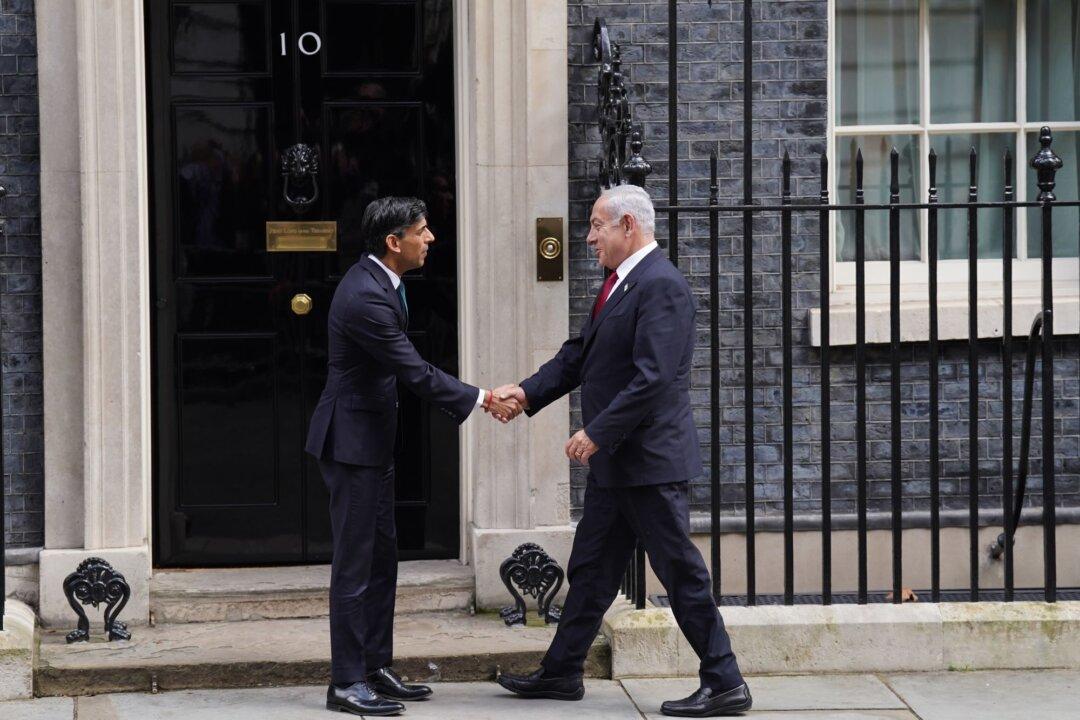Prime Minister Rishi Sunak challenged the visiting Israeli Prime Minister Benjamin Netanyahu, reminding him of the importance of “democratic values,” during a meeting in London on Friday, according to Downing Street.
The meeting was held in private and appears to have been largely cordial, with Downing Street releasing a statement saying, “The Prime Minister stressed the importance of upholding the democratic values that underpin our relationship, including in the proposed judicial reforms in Israel.”





